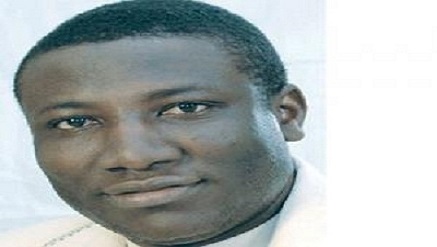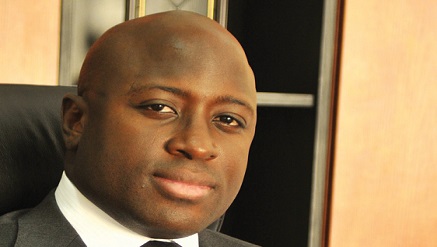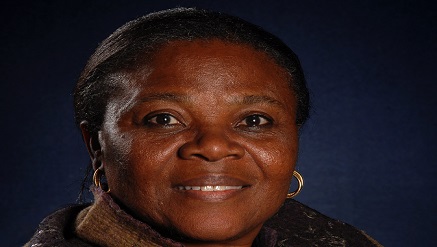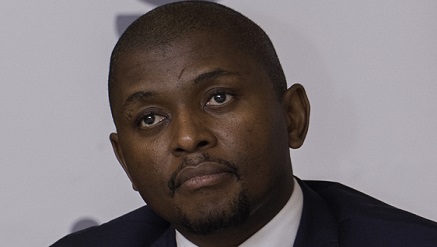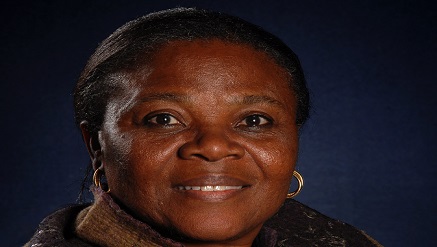News
Johnson Inaugurates ICT Incubation Governing Board
Mrs. Omobola Johnson, minister of Communication Technology, has inaugurated the Governing Board of the National ICT Incubation Programme tagged IDEA (’Information Technology Developer Entrepreneurship Accelerator).
The programme has a mandate to support Nigerian ICT Entrepreneurs to create successful businesses that will have global impact.
The programme will offer support to promising ICT entrepreneurs through ICT incubation centres established in a selected number of cities with the first two located in Tinapa, Cross River state.
The National ICT Incubation programme is an initiative of the Ministry conceived to support Nigeria’s growing startup community.
The Minister at the inauguration disclosed that while the centres will be initially established and funded by government through the National Information Technology Development Fund (NITDEVF), they will subsequently be funded and managed independent of government through a special purpose vehicle under the guidance and supervision of the Governing Council.
Mrs. Johnson urged the Board to perform their duties optimally in the interest of young Nigerians.
The members according to Mrs. Johnson are required to provide overall strategic support and leadership to the National ICT Incubation Programme, commission and evaluate the strategic plans and key performance indicators at the national and individual incubation centre level, guide the establishment of the centres and provide management oversight functions ,approve policies and procedures including tenant admission and tenant exit processes, select and recruit management staff for the incubation centres; and review performance of management staff.
The Governing council is also expected to review and approve incubate selection criteria and process developed by the incubator’s local management, support and assist Incubator Business Managers in creating links to local and international investment and professional resources that support the success of the centres and ensure the overall financial viability of the incubation centers, including seeking external funding and financial assistance, evaluation of annual operating budget, approval of major capital expenditures and equity investments.
Members of the Governing council inaugurated include Mr. Adedotun Suleiman of Arian Capital, Pius Okigbo Jr. of Infosoft
Osayi Alile Oruene of Fate Foundation, John Obaro of Systems Spec, Teemu Kiijarvi of Nokia, Wiebe Boer of Tony Elumelu Foundation, Juliet Anammah of Accenture, Mohammed Balarabe of Fidelity Bank, Vincent Olatunji of NITDA and Aristotle Onumo also of NITDA
>
News
IGP Confirms Prosecution of 113 Foreign Nationals for Alleged Cyber Crimes
Kayode Egbetokun, inspector general of Police (IGP), has confirmed that 113 foreign nationals are being prosecuted following their arrest by the Police National Cybercrime Center (NCCC) for their involvement in cybercrime activities.

The arrests were made on November 3, 2024, in Jahi, a suburb of the Federal Capital Territory (FCT), Abuja.
The arrested suspects were found with a range of digital equipment believed to be used in their cybercriminal operations.
Items seized include a Black Toyota Tundra vehicle, multiple laptops, smartphones, tablets, desktops, routers from MTN, Huawei, Airtel, D-Link, and Starlink, gaming consoles such as a Sony PlayStation 5, as well as high-capacity servers, drones, and specialized cybercrime equipment. Also recovered were international passports, identity cards, SIM cards from various service providers, and travel documents.
“These assets are suspected to have been used for unauthorized data breaches, marketing scams, and other illegal activities within the cybercrime ecosystem,” the IGP stated.
He emphasized the growing global threat posed by cybercriminal syndicates that operate across borders, noting the scale and sophistication of the operation.
In a statement by ACP Muyiwa Adejobi, Force public relations officer, it was confirmed that the suspects have been arraigned before the Federal High Court in Abuja, facing charges such as computer-related fraud, unlawful data access, marketing scams, money laundering, conspiracy, and illegal immigration.
The IGP further commended the NCCC, as well as the Police operatives attached to Zone 7 Command, for their role in dismantling this international cybercrime ring, which is also linked to human trafficking networks.
He reaffirmed the Nigeria Police Force’s commitment to collaborating with international law enforcement agencies and embassies to track down cybercriminals and bring them to justice.
“We will continue to combat cybercrime and other forms of transnational criminal activity, ensuring that perpetrators are held accountable under Nigerian law,” Egbetokun added.
The operation marks a significant step in Nigeria’s ongoing efforts to safeguard its cyber space and prosecute those who expl
News
ICPC Says 70 Percent of Nigerians Refused to Pay Bribes in 2023
Musa Aliyu, chairman, Independent Corrupt Practices and Other Related Offences Commission (ICPC), has revealed that 70 percent of Nigerians approached for a bribe in 2023 refused to comply.

Aliyu made this statement on Monday during an ICPC roundtable with state attorneys-general in the north-west region, held in Kano, aimed at strengthening the commission’s capacity for corruption prevention.
The ICPC chairman noted that the ‘2023 corruption in Nigeria: Patterns and trends report by the National Bureau of Statistics (NBS) and United Nations Office on Drugs and Crime (UNODC) revealed significant bribery prevalence in the north-west region and trends across Nigeria.
“Bribery is most common in public utilities, law enforcement, and administrative services,” he said.
“However, despite these challenges, the positive news is that 70 percent of Nigerians approached for a bribe in 2023 refused to comply on at least one occasion.
“In the north-west, 76 percent of individuals who encountered bribery requests resisted—the highest refusal rate among Nigeria’s geopolitical zones, indicating growing resistance to bribery in the region.”
The ICPC chairman noted that the state and federal governments have shared responsibility in tackling corruption.
He stated that this collaboration provides an opportunity to ensure that systems are accountable and transparent.
“In this regard, I call on the attorneys-general of the north-west to collaborate closely with ICPC to fortify systems of accountability and transparency that serve the people,” he said.
“Under section 6 of the Corrupt Practices and Other Related Offences Commission Act, ICPC is empowered to investigate and prosecute corruption across all sectors of public service, but your support and the local knowledge you bring are essential to making this effort more effective.”
He called for continuous encouragement of the people of the north-west to resist bribery demands.
“As chairman of the ICPC, I am committed to ensuring that the commission uses its law enforcement powers and preventive measures, which include enlisting and fostering public support in combating corruption in Nigeria within the confines of the law,” he said.
Aliyu added that pillar five of Nigeria’s national anti-corruption strategy (NACS II), collaboration and partnerships, remain a cornerstone of the fight against corruption.
News
Nigeria Issues New $500m Eurobonds to Fund 2024 Budget Deficit
After a long wait all year, the Federal Republic of Nigeria has announced the launch of a dual-tranche Eurobond offering under its Global Medium Term Note Programme to finance the country’s 2024 fiscal deficit.

The two tranches of the Eurobond are, 6.5-year bond with a coupon rate of 10.125 percent and the second tranche is a 10-year bond with a coupon rate of 10.625 percent.
The last time Africa’s most populous nation tapped the international debt market was in March 2022, when it raised $1.25 billion at a rate of 8.375 percent through a seven-year Eurobond.
Eurobonds are dollar-denominated debt which is an important source of foreign capital used for development finance. This issuance can serve as a succour for the country’s volatile currency and uncertainties like silence from the fiscal side, poor reserves, low oil production others could cause damage to the credibility of the Nigerian economy.
The bonds are expected to settle on December 9, 2024.
The proceeds from the Eurobond will be used to fund critical infrastructure projects and support economic growth.
This Eurobond issuance marks another significant step in Nigeria’s efforts to diversify its funding sources and attract foreign investment.
Wale Edun, minister of finance had announced plans for the federal government to issue $1.7 billion Eurobond as part of an external borrowing plan to strengthen the country’s finances and support economic reforms last month.
He said, “The first objective is to complete the federal government’s external borrowing program with the approval of the $2.2 billion financing package, which will include access to the international capital market through a combination of Eurobonds and Sukuk bonds—approximately $1.7 billion from the Eurobond offer and $500 million from Sukuk financing.
He disclosed this to State House correspondents on Thursday after the federal executive council (FEC) meeting presided over by President Bola Tinubu at the Presidential Villa.
According to him, the financing package will be raised through a combination of Eurobonds and Sukuk bonds, with approximately $1.7 billion expected to come from the Eurobond offer and $500 million from Sukuk financing.

 E-Business1 day ago
E-Business1 day agoTD Africa Joins Forces with Check Point to Enhance Cybersecurity in Nigeria

 Telecom1 day ago
Telecom1 day agoUBA Partners NIBSS on NQR Payment Solution

 E-Financial1 day ago
E-Financial1 day agoCBN to Penalize Banks for Failing to Address ATM Cash Shortages

 E-Financial1 day ago
E-Financial1 day agoCBN Launches New Website Today

 Telecom1 day ago
Telecom1 day agoMeta Plans $10Bn Subsea Cable Project to Boost Connectivity

 Telecom1 day ago
Telecom1 day agoIkenna Ikechukwu Emerges Champion at MTN’s mPulse Spelling Bee

 E-Business1 day ago
E-Business1 day agoNaija Shopping Festival: Konga Offers Unbeatable Christmas Deals

 E-Financial1 day ago
E-Financial1 day agoCBN Governor Urges Nigerians to Stay and Rebuild Amid Economic Reforms



